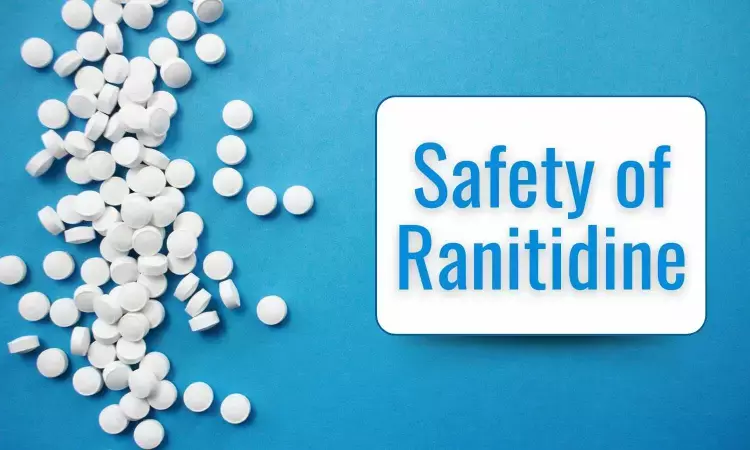- Home
- Medical news & Guidelines
- Anesthesiology
- Cardiology and CTVS
- Critical Care
- Dentistry
- Dermatology
- Diabetes and Endocrinology
- ENT
- Gastroenterology
- Medicine
- Nephrology
- Neurology
- Obstretics-Gynaecology
- Oncology
- Ophthalmology
- Orthopaedics
- Pediatrics-Neonatology
- Psychiatry
- Pulmonology
- Radiology
- Surgery
- Urology
- Laboratory Medicine
- Diet
- Nursing
- Paramedical
- Physiotherapy
- Health news
- Fact Check
- Bone Health Fact Check
- Brain Health Fact Check
- Cancer Related Fact Check
- Child Care Fact Check
- Dental and oral health fact check
- Diabetes and metabolic health fact check
- Diet and Nutrition Fact Check
- Eye and ENT Care Fact Check
- Fitness fact check
- Gut health fact check
- Heart health fact check
- Kidney health fact check
- Medical education fact check
- Men's health fact check
- Respiratory fact check
- Skin and hair care fact check
- Vaccine and Immunization fact check
- Women's health fact check
- AYUSH
- State News
- Andaman and Nicobar Islands
- Andhra Pradesh
- Arunachal Pradesh
- Assam
- Bihar
- Chandigarh
- Chattisgarh
- Dadra and Nagar Haveli
- Daman and Diu
- Delhi
- Goa
- Gujarat
- Haryana
- Himachal Pradesh
- Jammu & Kashmir
- Jharkhand
- Karnataka
- Kerala
- Ladakh
- Lakshadweep
- Madhya Pradesh
- Maharashtra
- Manipur
- Meghalaya
- Mizoram
- Nagaland
- Odisha
- Puducherry
- Punjab
- Rajasthan
- Sikkim
- Tamil Nadu
- Telangana
- Tripura
- Uttar Pradesh
- Uttrakhand
- West Bengal
- Medical Education
- Industry
Ranitidine Under Scanner Again: DTAB, CDSCO Recommend New Safety Study, Tighter Monitoring

New Delhi: Amid continued global concerns over the presence of N-nitrosodimethylamine (NDMA) impurities in ranitidine, the Drugs Technical Advisory Board (DTAB) has recommended a fresh, in-depth safety assessment of the drug. It has advised the Indian Council of Medical Research (ICMR) to conduct a detailed study evaluating the safety risks associated with NDMA, while also recommending that the Central Drugs Standard Control Organisation (CDSCO) constitute a larger expert committee to examine contributing factors such as storage conditions and impurity formation.
The matter was discussed during the 92nd DTAB meeting held on April 24, 2025. “The Board was apprised about the agenda along with report of expert committee constituted for this purpose,” the meeting minutes noted. DTAB observed that the key issue was related to the presence of N-nitrosodimethylamine (NDMA) — a probable human carcinogen — in ranitidine formulations.
Following detailed deliberation, the Board recommended the constitution of a larger committee to holistically examine all aspects of the safety profile of ranitidine, particularly the factors contributing to NDMA formation, including storage and stability.
“DTAB further also recommended that ICMR may conduct a study for assessing the safety of ranitidine drug considering the presence of NDMA impurity,” the Board noted in its official minutes.
The Board also emphasized the need for active manufacturer responsibility in monitoring impurity levels. “Manufacturers should monitor the NDMA levels in the API/formulation and also take risk-based measures such as reducing the shelf life,” DTAB advised.
Ranitidine, once widely used to treat heartburn and acid reflux, has faced regulatory scrutiny globally since 2019 after several countries detected NDMA in both over-the-counter and prescription formulations. Many nations, including the U.S. and several in Europe, have since withdrawn or suspended its use.
Also Read: USFDA Requests Removal Of All Ranitidine Products (Zantac) From The Market
Global Timeline of Regulatory Actions on Ranitidine and NDMA:
September 2019: The U.S. FDA issues an alert after detecting NDMA in ranitidine samples.
October 2019: European Medicines Agency (EMA) and Health Canada initiate reviews of ranitidine products.
April 2020: The U.S. FDA requests the withdrawal of all ranitidine products from the American market.
2020–2021: Multiple countries, including Canada, Germany, Switzerland, and France, suspend or withdraw ranitidine due to impurity risks.
India: In 2020, the CDSCO issued alerts to manufacturers and asked them to conduct internal assessments but did not impose a blanket ban.
Farhat Nasim joined Medical Dialogue an Editor for the Business Section in 2017. She Covers all the updates in the Pharmaceutical field, Policy, Insurance, Business Healthcare, Medical News, Health News, Pharma News, Healthcare and Investment. She is a graduate of St.Xavier’s College Ranchi. She can be contacted at editorial@medicaldialogues.in Contact no. 011-43720751


